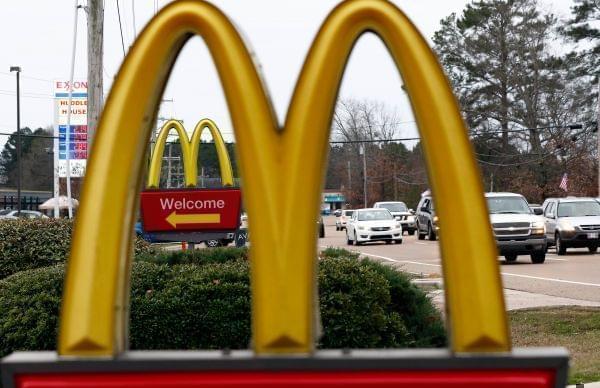Fast Food ‘No Poaching’ Clauses; Trade Wars & Farmers; Small Town ‘Brain Gain’

Rogelio V. Solis/AP
On the 21st: We discussed the small clause in an employee contract that prevents fast food workers from moving to different franchise locations. Plus, how this turbulent year in trade policy has affected farmers in the state. And, how some small towns in Illinois and across the country are working to reverse brain drain in their respective communities.
Some fast food chains in Illinois and across the country have clauses in their franchise agreements that prevent workers from getting jobs at other locations of the same restaurant owned by a different franchisee. And in many cases, workers don’t even know about it.
Let’s say you work at a Dunkin Donuts, and you find out there are better or more hours available at a location a mile away. But if it’s owned by a different franchisee, you might not be able to get the new job.
This is because of what’s referred to as so called “No Poaching” clauses. They exist in a wide variety of industries, but Attorney General Lisa Madigan has launched an investigation focused on fast food restaurants. She’s joined with several other states to demand information from eight fast food companies: Burger King, Dunkin’ Donuts, as I mentioned, plus Five Guys Burgers and Fries, Little Caesars, Panera Bread, Popeyes Louisiana Kitchen, Wendy’s and Arby’s. However, Arby’s has since announced plans to end its requirement franchisees not hire workers from other Arby’s franchisees.
To talk to us more about no poach agreements, and how they affect workers, we were joined by Eric Posner, a law professor at the University of Chicago who has been researching these practices.
1/2 of all franchises in US use No-Poach clauses, explains Eric Posner of @UChicagoLaw
— The 21st (@21stShow) July 18, 2018
His research has led to investigations by AGs across the country https://t.co/W99APLi9xs
Plus—
We’ve been hearing about the trade war with China for most of President Trump’s administration. First there was the anticipation of it, then the announcement of tariff hikes on Chinese imports. Now we have the potential fallout...especially here in Illinois.
Illinois farmers have been one of the most vulnerable groups in this battle. China is the world's largest buyer of American soybeans, and U.S. farmers sell about a third of their soybeans there. And, just last week, soybean prices hit a 10 year low.
So what do these back and forth negotiations between our countries mean for farmers’ bottom lines? And, for a group that has traditionally been core Republican voters, what will that mean come election time?
We heard from some farmers across the state as well as Mike Doherty, a senior economist for the Illinois Farm Bureau.
"Economists are still arguing about whether or not we're in a trade war, but if you're in agriculture it certainly feels like it."
— The 21st (@21stShow) July 18, 2018
- Mike Doherty a Senior Economist at @ILFarmBureau#Trade #TradeWars #agriculture
And—
You’ve probably heard about the idea of a “brain drain” - where young people grow up, leave their hometowns and never come back. We especially hear that when it comes to rural areas.
But in some areas in Illinois and across the country, local residents are trying to work together in new ways to reverse that trend - using community-building tools that are a lot more than just trying to get the next big company to set up shop nearby.
Brittany Grimes is one of those people who defies the trend. She grew up in Galesburg in the western part of the state and has since moved back to work there and volunteer with Galesburg On Track. Also with us was Alece Montez, the director of programs with the Orton Family Foundation. Gisele Hamm manages the “MAPPING the future of your community” program with the Illinois Institute for Rural Affairs at Western Illinois University.
"It's clear we're seeing divides across America, whether its newcomers & old-timers or different sectors...For us, we see the unintended or unexpected benefits of going into small communities."
— The 21st (@21stShow) July 18, 2018
- @alecemontez of @OrtonFoundation
